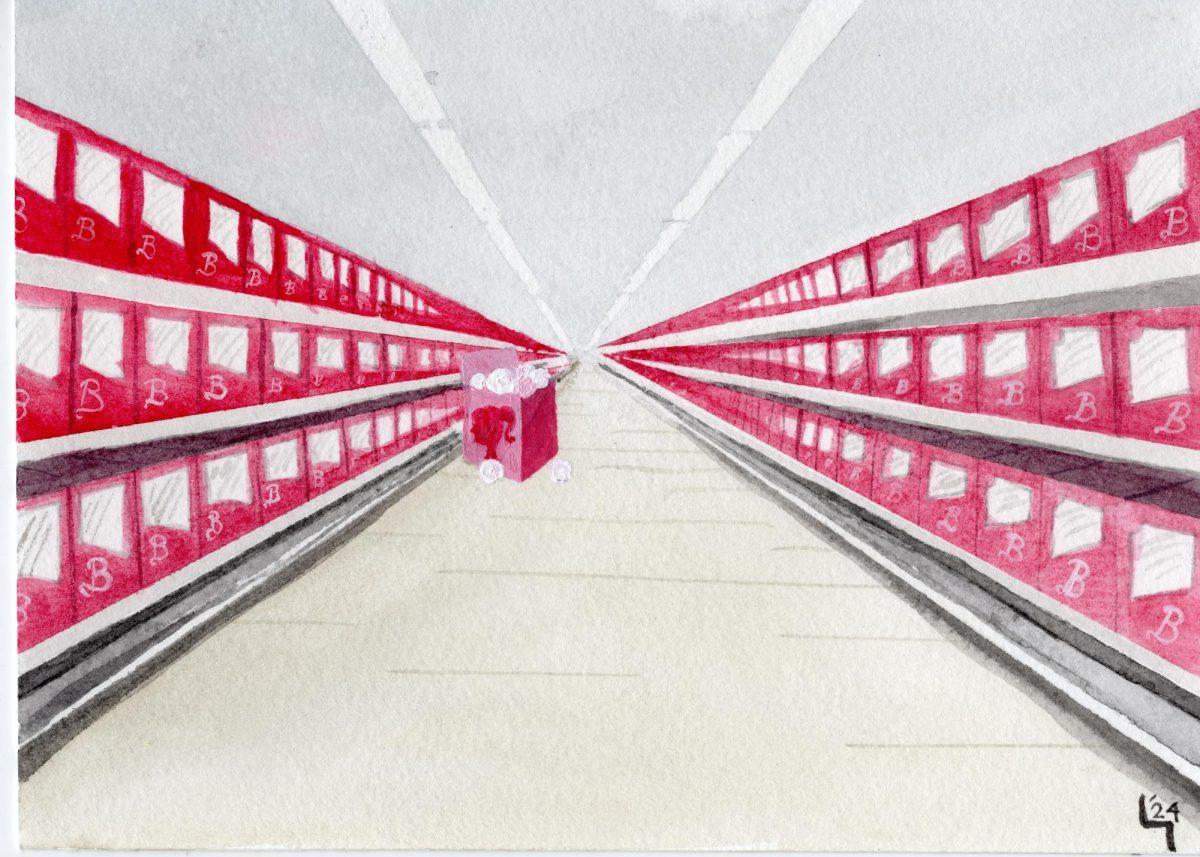We all know the usual feminist icons touted during Women’s History Month — Simone de Beauvoir, Ida B. Wells, Ruth Bader Ginsburg and Frida Kahlo, to name a few. They and countless others are celebrated for their astounding contributions to the feminist movement, from breaking boundaries in the art industry to revolutionizing the role of women in society.
But what about those who negatively contributed? Namely, icons who may have claimed to support the movement but in reality subverted it.
I’m talking about you, Barbie.
Before this fabulous blonde came along in the 1950s, most girls played with baby dolls that conditioned them into being mothers and reinforced their caregiving role in society.
Barbie, however, changed the status quo. Her first big break in the fashion industry was a real job — and with that came money to spend. But you couldn’t just buy Barbie without buying all her outfits to model as well, and it was through this spending embedded in her product that Barbie directly modeled the late 1950s developing teen culture. Young girls didn’t just have to aspire to motherhood anymore but instead could begin to associate adulthood with indulgent consumption.
Barbie’s origins weren’t empowering so much as commercialistic, but who’s to say people can’t change? From going to the moon to becoming the first female president, she really has set a wonderful example for girls all across the nation.
Right?
The role of the middle-class woman has substantially changed since the 1960s and so has Barbie’s. She is now a zoologist, doctor, athlete, construction worker, chef, engineer, ballerina, yoga instructor and everything in between. The barbie of today is no longer just a shopper — but you still are. How else do you expect Barbie to perform experiments if you don’t buy her lab equipment? How can she save lives if you don’t drop almost a hundred dollars on her ambulance and hospital accessories kit? After all, you don’t want your little girls to have only one dream job, do you? Remember, girls can do lots and lots of anything!
Whether it’s in the form of outfits, playsets or dream houses, to purchase a Barbie is to purchase a Barbie identity. In other words, any Barbie can be reduced to only what she owns — and by partaking in such consumerism, that’s all we are too.
It’s pretty obvious now that these corporations are simply folding the language of progress and diversity into their Barbie products, but it doesn’t stop with her 250 different jobs.
Mattel launched Barbie in “petite, tall and curvy” body types, but if you take a closer look, all we’ve got is classic skinny, short skinny, tall skinny and slim thick — who, by the way, is still smaller than real “curvy” women. Throwing in a couple of “diverse” shades and different fonts of the same skinny body type doesn’t exactly scream progress, and the majority of what’s actually on store shelves is still classic Barbie.
Even if Mattel wanted to truly promote diversity and body positivity, isn’t it a little hypocritical to be selling official Barbie anti-wrinkle cream, anti-bump serum and makeup at the same time? These products reinforce the idea our natural bodies are imperfect and can only be considered as perfect as Barbie’s by consuming them. Apparently, our teeth are ugly too.
Nonetheless, they persist.
Numerous Barbies modeled after inspiring women such as Amelia Earheart, Sally Ride and Rosa Parks have been released throughout the years. At first glance, these astounding women obviously must serve as excellent role models for young girls — assuming they can afford them in the first place. Though I’m pretty sure most girls can learn how to paint on their own without dropping $200 on a yassified Frida Kahlo Barbie.
Barbie wants us to feel good about ourselves, but we must first purchase her official Barbie products. She wants us to reify her world of female empowerment, but not without her hundreds of expensive accessories and kits. All it takes is for companies to lather Barbie in technicolored feminism monogrammed with pink bold logos and artsy, self-aware messaging to placate society into thinking she’s empowering.
We cannot fall for it.
As consumers in a capitalist society, we love to feel like we can shop our way through social justice, but what we don’t realize is this feeling arises from faux-feminist marketing designed to give the illusion that our purchases result in tangible change. Advancement in historically male-dominated occupations is commodified into accessories. Radical feminist messages are diminished to “You can do it too” and plastered all over merchandise. Powerful movements become nothing more than mass-manufactured, packaged toys to be purchased.
It’s not feminism; it’s a plastic doll. Plastic feminism, if you will.
Isabella Garcia is an economics sophomore and opinion writer for The Battalion.























Jeffrey Cheung • Mar 5, 2024 at 11:21 pm
ANOTHER AMAZING ARTICLE FROM ISA
HAD ME JUMPING IN MY CHAIR THAT I ACTUALLY BROKE THE CHAIR LEGS
WHAT AN EXCITING ARTICLE
I CAN’T WAIT FOR THE NEXT ONE